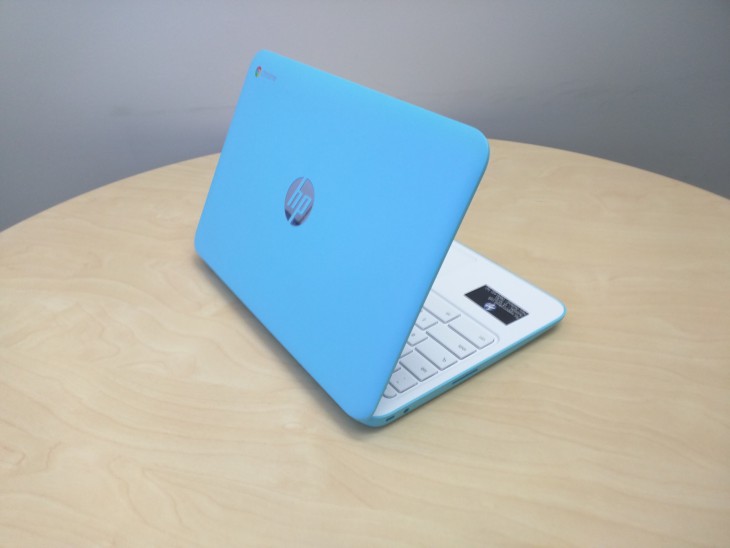
From time to time at Ausdroid we get the opportunity to review devices that complement Android or the larger Google ecosystem. Amongst these devices Chromebooks are a hot favourite for many of the Ausdroid writers. At this point I have a confession, I’d never used a Chromebook for an extended period, until now. Thanks to HP I got the opportunity to spend a couple of weeks with the HP Chromebook 11 (2201TU), and I have to say that I think there’s a place in my Android/Windows PC powered life for a few Chrome OS devices.
The review unit I had was the latest iteration of HPs regularly refreshed Chromebook 11 lineup, the Chromebook 11 (2201TU), this is the 3rd device from HP to carry that name. It has an 11.6” HD (1366 x 768) LCD display, Intel Celeron Processor, 4GB of RAM and 16GB of internal SSD storage. This is not the machine you’re going to use to re-encode your 4K videos, and it was never meant to be. Many people call Chrome OS a glorified browser, but in my usage of the device I found it can be so much more.
Is Chrome OS something you should invest in? Is the HP Chromebook 11 2201TU a device that allows you to experience everything Chrome OS has to offer? Read on to find out.
- Hard to find in a retail stores
- No Touchscreen
- Processor can be a little lacklustre
The HP Chromebook 11 (2201TU), we’re going to be calling it the Chromebook 11 from here on out, builds on the legacy that HP has built with their previous Chromebook offerings. It brings with it a updated Celeron N2940 processor and a significant increase in RAM from 2GB to 4GB, addressing one of Scott’s and other reviewers issues with previous devices. With the 4GB of RAM I found the device handled multiple open tabs and apps with easy. I never felt that the device was suffering for lack of RAM to handle my heavy multi-tab usage. When using a keyboard and mouse machine I normally use one of three computers, a relatively recent ROG gaming laptop, a self built Gaming PC or my much maligned work issued Core i-nothing work PC, that is stranded on some weird sku of Windows XP. Unfortunately the app loading experience on the Chromebook 11 was more like the work machine than my gaming rigs. For a sub $500 laptop that’s not overly surprising. Chrome tabs themselves “opened” lightning fast with the actual web content loading and rendering soon after, and the system UI was equally responsive. However I installed a handful of “apps” for things like exchange email and local network storage access and these apps loaded a little slower with the more traditional splash screens and content rendering delays you get with lower powered machines/ heavy apps. Accessing the storage was also a tad on the slower side, especially once I managed to link it to my SMB windows server. To be honest it never once bothered me and never felt like it was “too long” but for such simple apps there was a noticeable launch time. I put this down to the somewhat low powered Celeron N2940 clocked at 1.83GHz, however being a cloud first OS it may have also had something to do with my abysmal internet speed, but we’ve all had enough of me complaining about that. The keyboard was easy to use with the keys being surprisingly well spaced for an 11.6” device. The majority of this review was in fact written on the device, thankfully we don’t do that with phone reviews. The keys had good travel with the kind of quality you’d expect from a company who have been making laptops since laptops were thing. The keys weren’t backlit, which at this price point isn’t a big deal, but would have been nice if they were. The trackpad was as good as a trackpad needs to be. When intending to use the trackpad it was responsive to touch and easily recognised with tap to select of a hard click. The lack of a right click took some getting use to, however, as is the Chrome OS experience I just had to learn the right shortcuts to get back my full functionality. Gestures were easily recognised by the trackpad and definitely made navigating the system much easier. Unfortunately, as is often the way with trackpads it regularly pick up my palm movements as swipes and sent the cursor flying across the screen. This is an issue with all trackpads I’ve used and hardly an indication of a fault with this device. This is not a top shelf Gaming laptop or executive ultrabook, it’s a mid to low cost entry level device. With that in mind I found the “eggshell” feel plastic to be pleasing to the touch and certainly resistant to fingerprints. I carried it to and from work in my satchel daily and found that it was both light and sturdy enough that I wasn’t concerned for its welfare nor did I require orthopaedic surgery after carrying it for 20 minutes. Overall, for the price I was very satisfied with the build of the device, and would happily spend my own dollars to get one. At 11.6” the 1366 x 768 HD LED screen is on the smaller size and some on-screen text could be hard to read with my ever aging eyes. I found myself increasing the screen zoom which makes it easier to see but then you have less content on the screen, it’s a balancing act. The resolution was also a little low which in a world of 2K phones and monitors did make onscreen text occasionally look blocky, and photos a little less “poppie”. For watching videos however, I found the display more than adequate. One missing element for me was touch. I found it very interesting that despite approaching this as a mouse and keyboard OS that from the very first use I found myself trying to reach out and touch UI elements. Alas with no touch screen these attempts were not successful. I personally feel that on this size device touch seems to make sense, I wonder if my usage of 10” convertible Android tablets has programed me to expect touch from this sized device? The laptop had more than acceptable viewing angles and screen brightness for my indoor viewing needs. I never tested the device outdoors as I don’t have use for an outside laptop. At night it was a little bright in a completely darkened room. I regularly used the Chromebook 11 on and off all day at work and then continued to use it throughout the evening without recharging. Without a doubt it outlasts a mobile’s battery performance by at least a factor of 2. From fully charged the device would report 8 – 10 hours usage at about 60% brightness. My real world usage would come in at about 6 hours screen on time with intermittent use during this time. The power efficiency of the Celeron processor is evident here, as the Chromebook 11 could easily outlast any of my more powerful Windows laptops. It would have been nice if the device could be topped up or supplemented through USB charging, however, with the price point required for this device perhaps that just wasn’t possible. I would definitely be far more tempted by a Chromebook the could be charged by USB, even if it was through the newer USB C standard. The VGA web camera on the device is competent at best. With a maximum resolution of 640×480 you can’t reach the levels of crispness and clarity that you can from HD or FHD web cameras. That said it was more than sufficient for a quick hangout with family, I’m just not sure Jason would be happy with me if I tried to join the Ausdroid Podcast from the device. The Chromebook 11 has 2×2 802.11 a/b/g/n/ac WiFi and bluetooth 4.0. My internet connection is horribly awful at best, with a maximum speed of about 3.5 Kb/s. As such it’s a little unfair to draw any network speed conclusions from my experience. I was able to connect the device to my local storage and stream local videos without any network lag. Scott experienced some network wonk on the previous models, unfortunately, it’s hard for me to say if this has been fixed. I watched a few shows on the laptop and while the speakers were loud enough for most situations, the audio quality was not great, when competing against a close dishwasher for instance it lost every time. At lower volumes the audio could be muffled and the spoken word was often difficult to make out. At the higher volumes the audio became quite tinny and lost a lot of range. It’s fairly clear that this Chromebook was not intended to be a mass consumption device, however, the speakers are more than adequate for typical web use, and the odd bit of YouTubing. When paired to either my Sennheiser MM100 wireless headphones or a wired headset the audio was a good as my ears could detect.Hardware
Build Quality
Screen
Battery life
Camera
Connectivity
Sound
Software
Chrome OS
One of the advantages of Chrome OS is that regardless of which machine you run it on you’re going to get a consistent experience. Google strictly controls the OS, as do most of the other major desktop OS developers, and as a result you get a clean and consistent user experience regardless of manufacturer. During my 2 weeks with the device it received 2 system updates, impressive to say the least.
I have to admit if Google was taking votes on the direction they should take Android in I would prefer they head down a similar line, at least for the Google Services enabled variants of Android.
As such there is little benefit in discussing skins, or bundled apps or launchers as it’s all standardised, and the one “HP app” was just a shortcut to HP’s website. However this being my first Chrome OS review, and device, I wanted to take the opportunity to discuss my thoughts on using Chrome OS.
I have to admit I have viewed Chrome OS with both interest and mistrust in the past. I have been wanting to seriously use Chrome OS for sometime now however I did harbour some preconceived notions that it was going to be just a web browser. Spoiler, if it is just a web browser turns out that meets 95% of my usage needs.
Cloud First
You often hear people critiquing the cloud first nature of Chrome OS, the philosophy is simple, the Cloud can offer many of the same, or better, experiences as a traditional local application, so just access them there.
The best example I have of this is Google Photos. Even when using a ‘real pc’ to find a particular photo I don’t go to my local network RAID and look through the well curated folders that my wife has painstakingly created, no, I go to Google Photos and search for what I’m looking for, and typically find it first go. The same is true for many other traditional ‘desktop’ activities.
What about productivity you ask? Let’s just assume productivity means word processing and spreadsheets, well this entire review was written online, using a ‘cloud’ word processor. How about Spreadsheets? I am known to create intricate and complex spreadsheets for various purposes, and in doing so I will admit for some functions even in Office 360, which I have also been using on Chrome OS, isn’t as good in limited situations. However, for the majority of functions we are getting closer to parity between cloud and local clients.
If you want to create a list of things you can’t do as well or as easily on Chrome OS you could do that. However, for the vast majority of users the number of things they couldn’t do would be small. For me, my pre-existing concerns were definitely alayed as I used the device, I found that a Chromebook almost completely replaced my tablet usage and significantly reduced the times when I ‘had’ to use a PC and in doing so actually made the process of engaging with a “computer” easier.
That all sounds very positive doesn’t it? Win win? Little to no compromise? Well there’s a rub, and that rub is network connectivity. To put it in plain english your Chrome OS device is a good as your internet connection. Have a NBN connection with great Wifi, your device will sing like a performer on some TV singing show. Have a 200MB data cap on your 3G pre-paid plan? Well you might want to find a free WiFi hotspot at your local burger purveyor. I have a 7GB mobile data plan, with better than average connectivity in my office however, I had to carefully moderate my use of the Chromebook when away from my, admittedly slow, but plentiful home connection. It’s not a deal breaker but it is something you have to be aware of.
Local storage
On an Android device 16GB of storage would be horrifically small for my use. After I install all of my apps, and music and start filling it with photos 16GB would run out before I even finished the set-up. However as discussed above being a cloud first device the apps you install are typically web shortcuts or lightweight wrappers. You simply stream your music, it’s all online or on your phone, and if needing more storage is required because taking photos with a Chromebook becomes a thing, then our society has bigger problems than running out of storage!
That said I did have to download a few images for posts or grab a PDF of an announcement, and in those instances the local storage was more than sufficient. I also saved any doc I was actively working on to local storage so I would have ‘offline’ access. Overtime this would have resulted in me receiving some sort of storage warning, however I get these same warnings on my “real PCs” as well so no biggie.
With a new Chromebook you typically get 100 GB of data for free for 2 years, and while that’s great I have personally had one of these 2 year deals expire with another cloud storage platform which has rendered my account useless as I somehow managed to upload a large chunk of data – and I now can’t be bothered to fix it. I personally would have prefered lifetime data, even if it was at a significantly reduced capacity.
A pathway to Google
As a gateway to Google’s services you might expect that Chrome devices get special treatment, not so, outside of offline mode for Google Apps, Chrome OS functions just like most Chrome browser would. That said the launcher is filled with shortcuts to access most of Google’s mainstream services, this felt more like marketing than optimisation to be honest.
I live somewhat heavily in Google Ecosystem – email being my one big exception – and as such I found a chromebook the perfect companion device to my Googlised online life. My music, favourites, photos, reminders, notes, data and basically everything else was simply waiting for me seconds after Chrome OS booted up for the first time. This sort of single signin is the kind of technological promise we have been made, as the Chrome OS ecosystem delivers on it.
Unfortunately it seems Chrome OS wasn’t made to play with other ecosystems well, specifically local networks. I have a windows based SMB server running over my LAN and found even getting the Linux based Chrome OS connected to it very difficult. Even after I found the suitable app to make this happen the experience was slow, janky and not always successful.
Chrome OS may be a cloud first device but I think Google may need to bake functionality such as this into it if they truly want to extend it to more markets and use scenarios.
- 10.6” HD (1366 x 768) LED display
- Intel Celeron N2940 Quad-Core @1.83GHz
- 4GB RAM
- 16GB internal eMMc + 100 GB (for 2 years) of Google Drive storage) with SD Card slot (SD not MicroSD)
- VGA Webcam
- Connectivity WiFi 802.11 ac, Bluetooth 4.0
- Ports
- HDMI x 1
- USB 3.0 x 1 (not type C)
- USB 2.0 x 1
- 2.5mm audio jack
- DC in
- SD Card
- Kingston Lock
- GPS, GLONASS, Beidou
- Cellular:
- 3 cell 26 Whr Lithium-ion polymer battery
- 30 x 20.57 x 2.045 cm @ 1.283 KG
- None
The HP Chromebook 11 is a well made and decently specced device for a $429 RRP laptop. From the sturdy egg shell construction to the zippy performance the device provides a great vehicle to experience all that Chrome OS has to offer. In the 2 weeks I used the device I found my connected device usage radically changed, and that overall experience generally improved.
Using the Laptop made me want both Chrome OS and a Chromebook 11. The desktop grade version of the chrome browser gives you more power and functionality than an Android tablet, bundled in a package that is more convenient than having to pull out and boot up a traditional laptop. I have no issue recommending Chrome OS and by extension a HP Chromebook 11 to anyone who lives on the net and doesn’t have some very specialised computing requirements.
If you were only going to have one computer in a house it may be harder to know that Chrome OS would be flexible enough to be that one computer, however, in the vast majority of cases I bet it would be.
If you’ve been holding back from trying chrome OS because you think is not a ‘real’ computer let me assure you that’s for 2 weeks I did almost everything I needed to on the Chromebook 11. I highly recommend everyone find a way to give Chrome OS a try, I think you’ll like it.


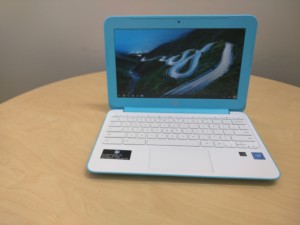
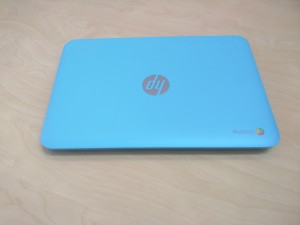
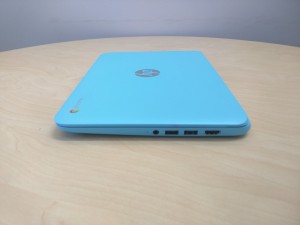
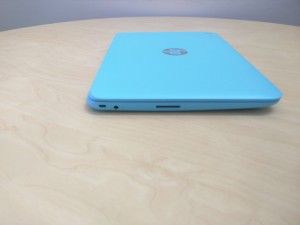
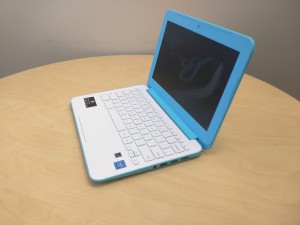
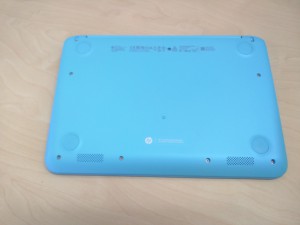

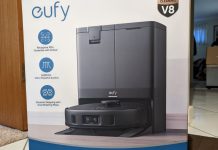
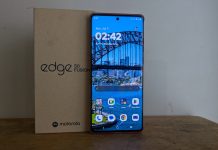
Will be interested when they start selling a chrome book for <200 with decent any of ssd
To this day, I still use my OG HP Chromebook 11 (the one that Google helped design) with the USB charging. It’s relegated my PC to the times when I need to do some coding, play games or use Lightroom (can’t wait for Adobe to make the web version as powerful as the desktop one). One thing you didn’t mention, and I think it’s the greatest strength of ChromeOS, is the security. I gave my mum a Chromebook years ago and it runs as good today as the day I gave it to her. A Windows laptop would be crawling… Read more »
Hey Max,
yeah I could have paid more attention to its security and power wash benefits. In the end I had to stop writing, I can get a bit TL:DR at times.
I’ve been seriously thinking about switching my mum to a chromebook, however, she uses exchange email and that experience wasn’t fantastic.
Might wait and see if androidify expands to self hosted exchange servers.
According to HP harvey Norman and office works both stock the device.
But where can I buy one? Google’s own Chromebook site links to dse (heh) and jb hi-fi who don’t sell Chromebooks anymore.